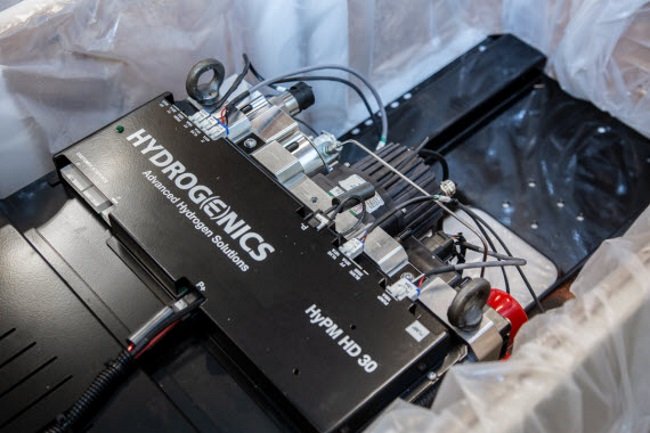Important next step taken in the development of hydrogen fuel cells for ships

Swiss manufacturer ABB and Norwegian research outfit SINTEF Ocean have provided an update on groundbreaking research to test the viability of fuel cells as an energy source for main ship propulsion.
The new research project will use two 30kW fuel cells to model the operation and control of a complete marine power system in a megawatt-scale propulsion plant. ABB software together with SINTEF Ocean’s vessel simulator capabilities will imitate and play back different load profiles and diesel/battery/fuel cell combinations, tested in a scaled down laboratory environment.
The trials will explore more than the technicalities of scaling-up and optimized fuel cell/battery combinations alone.
“SINTEF is contributing the hydrogen supply and infrastructure, while having a test lab gives ABB and SINTEF Ocean the opportunity to increase in-house competence for integration, control and safety of fuel cell technology in marine applications,” said Anders Valland, research manager for maritime energy systems at SINTEF Ocean.
“Fuel cell technology is maturing quickly. These trials are expected to provide the platform for fuel cells to build on, so that they can take a position in the maritime sector that is competitive with fossil fuels,” commented Jostein Bogen, product manager for energy storage and fuel cells at ABB Marine & Ports. “Finding unknowns and coping with them in a controlled environment, rather than risking surprises onboard ship will be central to these trials.”
Using hydrogen as fuel, the proton exchange membrane fuel cells (PEM) separates electrons and protons, with protons passing through and electrons used as electrical output. Hydrogen is converted directly to electricity and heat without combustion. PEM fuel cells operate at a lower temperature, are lighter and more compact than their solid oxide counterparts.
ABB’s Bogen maintained deepsea shipping will not have to wait until 2050 for the combustion-free generation of electricity, heat and clean water.
“With the use of renewables to produce hydrogen for fuel cells and stored energy for batteries, the entire chain can be clean,” he claimed.
Thursday sees an important conference take place in Brussels looking at hydrogen and fuel cells to decarbonise shipping.
